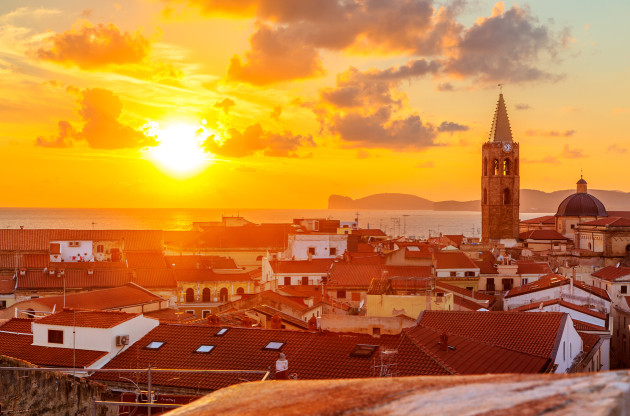
Talking Torbato: Sardinia's rising star
Wine Talk’s Sarah McCleery meets a new grape with ‘star performer’ credentials while travelling in Sardinia
Just after this year’s harvest, I was visiting Sella & Mosca in Sardinia. Located in Alghero, the winery is the island’s biggest – its vast vineyard holding thanks to its origins as a vine nursery. Extending to 650 hectares, the estate’s I Piani contiguous vineyard is one of the largest in Europe. It was here that I tasted wines from the white Torbato for the first time. From dry to sparkling, I found plenty to like.
A member of the Malvasia family that likely arrived in Sardinia in the 1300s when the island was conquered by Peter IV of Aragon. It is a variety that likes dry, warm weather and it has settled contentedly in the calcareous-clay soils at Sella & Mosca. So much so that the company has 97% of the island’s Torbato plantings. Given that it’s rarely seen anywhere else in the world, this is a one-estate grape, but nevertheless, one worth getting to know.
Why? Oenologist Giovanni Pinna says, “Torbato is an eclectic variety that makes sparkling wine, young fresh still wines as well as wines with ageing potential. It is a variety that readily expresses its terroir… and the warmth, structure, and generosity of the soils at Sella & Mosca.” He continues, “the wines are almost never exotic or blatantly floral, but always fine, rich, articulate and elegant.”
Whilst Pinna is justifiably enthusiastic, it should be noted that Torbato is not entirely straightforward. Thin-skinned and late-ripening, the grape is prone to disease. Yields need to be carefully managed to strike the optimum balance between sugars that can run too high and acidity that drops too low, when left unchecked.
Nevertheless, Torbato has found a happy home at Sella & Mosca where it has become the star performer in a hugely enjoyable – and competitively priced – range.
Tasting Torbato
DOC Alghero Torbato Spumante Brut
What I liked about this was its brilliantly clean and fresh aromatics. Citrus and floral, with notes of Mediterranean herb, it is relentlessly moreish. Second fermentation takes place on the less in stainless steel for 20 days.
DOC Alghero Torbato Brut Metodo Classico Oscarì 2018
Second-fermentation in bottle, with one year of lees ageing. Utterly charming, spring blossom, clementine, and hazelnut aromas. Fine, with very decent length. An impressive alternative to ‘premium’ Prosecco.
DOC Alghero Torbato Catore 2020
Picked from a plot with a higher level of chalk, this is the most saline and fresh of the Sella & Mosca Torbato wines. Elegant and refreshing, with partial fermentation in French oak. The palate is textural and flavoursome. Again, it is the wine’s sheer drinkability that impresses.
DOC Alghero Terre Bianche 2021
Terre Bianche is Sella & Mosca’s ‘cru’ and there’s a subtle complexity to the wine that, if I’m honest, is perhaps a tad muted. I would probably return more readily to the Catore which has more meat in its bones at this stage.
DOC Alghero Torbato Bianche Cuvée 161 2021, 2019, 2018 & 2015
I am repeatedly told that Torbato has great ageing potential. Where’s the evidence I want to know, and I’m generously presented with a flight of four wines from the top-of-the-range Cuvée 161. Grapes are picked from vines grown on chalk-rich soils and fermentation, on the less (a proportion in barriques), makes Cuvée 161 the most structured and rich of the range. In a nutshell, I am not persuaded that aged Torbato is the next big thing. Whether this reflects vintage or winemaking I am not sure. What I do know is that the 2021 is a succulent, savoury, salty white wine that has impressive drive and energy. It has lovely balance and good breadth of flavour. I am not in a hurry to leave it unfinished.




